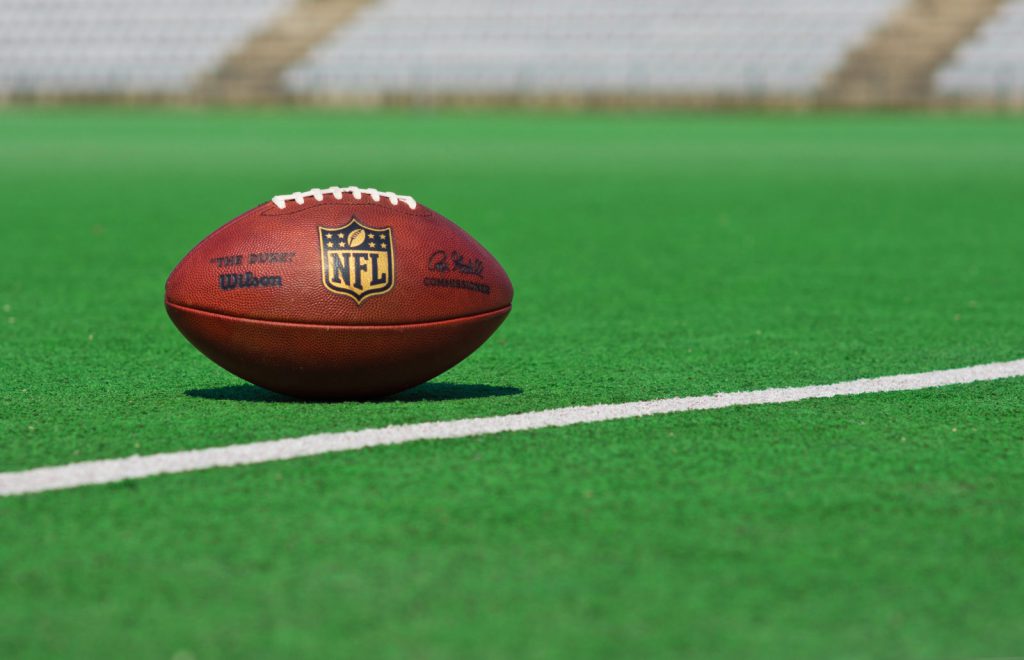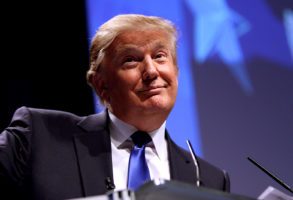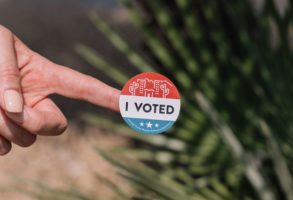
Published September 29, 2017
According to an account my son came across a while ago: “Football is one of the most powerful institutions in American society. It is so powerful that it claimed an entire day of the week. It said, ‘This day is ours. We own it.’ Not only did football take a day of the week, but the previous owner was God.”
Though a failed fan myself (no less a figure than Jack Kemp advised me to give up trying to master the rules), I am an American, and accordingly can hardly miss the fact that football is one of the most unifying aspects of American culture. The games have become the one thing that most Americans, especially men, can comfortably discuss. No matter what region of the country you’re visiting, you are bound to hear men who find themselves thrown together asking, “Did you see the game?” Animated analysis, crowing, and/or cringing follows. Black and white, immigrant and native born, men and (mysteriously) women, adults and children, liberals and conservatives — huge swaths of the country speak the same idiom and share the experience of football. Super Bowl Sunday is close to a national sacrament.
You think it’s easy to maintain national cohesion? It isn’t. That’s why demagogues since time began conjure external enemies and scapegoat minorities — which is not to say that enemies are always imaginary. In our time, the things that divide us are all too obvious. We are increasingly self-segregating by income and education. Due in part to choice and in part to history’s overhang, we continue to live in racially distinct enclaves. Democrats and Republicans despise one another to the point where they avoid living in the same neighborhoods or dating each other. Many parents now frown on their children marrying “outside the faith” — by which they mean not Catholic or Protestant, but Republican or Democrat. And speaking of faith, in actual houses of worship, things haven’t changed much since Martin Luther King Jr. called 11 a.m. Sunday morning “the most segregated hour” in American life.
So it would seem downright reckless to tamper with football — the one cultural touchstone that unites us, however tenuously.
Reckless is our president’s calling card. Or perhaps that’s too generous. He didn’t just suggest that the black players who knelt during the national anthem be fired, he called them “sons of b*****es.” Football had some troubles before, but now we have a national concussion.
Who could blame people for noticing that when it came to Tiki-torch neo-Nazis in Charlottesville, Trump strained to stress that some were very fine people, but black athletes who protest police brutality get this treatment?
Colin Kaepernick forfeited the benefit of the doubt when he donned a Che Guevara T-shirt. But it doesn’t require much imagination to see that other black athletes felt backed into a corner. As David French wisely noted:
At one stroke, thanks to an attempted vulgar display of strength, Trump changed the playing of the anthem and the display of the flag from a moment where all but the most radical Americans could unite to one where millions of well-meaning Americans could and did legitimately believe that the decision to kneel represented a defense of the ideals of the flag, not defiance of the nation they love.
One reason some conservatives have seen a silver lining to Trump is immigration. They worry that our national identity is being frayed by the burden of assimilating large numbers of newcomers and trusted that Trump would crack down on illegal immigration and even reduce legal immigration. But if you’re worried about national unity, surely maintaining mutual respect and decency between American citizens who are already here is the bare minimum one expects of a political leader. People say Trump’s crudeness doesn’t matter. It’s stylistic. But that’s only part of the issue. It’s far more damaging that he’s dangerously divisive.
Police treatment of young black males, so-called “mass incarceration,” crime, whether the criminal-justice system is biased — these are matters the Left has attempted to exploit and, in fact, has successfully exploited for decades. That’s not a reason for the Right to do likewise. We owe a duty to black Americans to take their concerns seriously. Even if it were the case that no black man had ever received unfair treatment at the hands of the police — and that is far from the case — it would be the job of patriotic Americans to make that argument in respectful tones to blacks who feel aggrieved — not to taunt them and invite contempt for their views.
American life is still strewn with racial sensitivities. Decency demands that we attempt to soothe, not inflame them.
— Mona Charen is a Senior Fellow at the Ethics and Public Policy Center. © 2017 Creators.com








